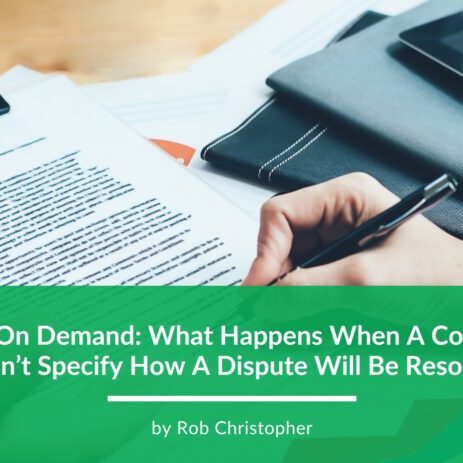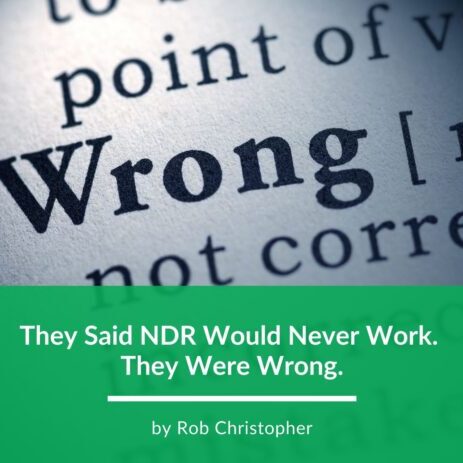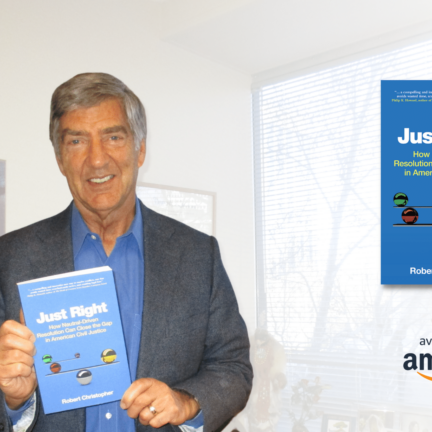What’s in it for Them?

SO YOU GET IT. You know what’s in it for you. You want neutral-driven dispute resolution in your business contracts. But to make this happen, the other side also has to agree. Since it’s less well known, and not yet standard in industry contract templates, you’ll probably need to propose Just Resolve for any disputes that arise, or at least for disputes up to some comfortable level of money stakes. When you do, and if your counterpart has not heard of Just Resolve before, he or she might be unsure or suspicious.
The good news is that you’ve proposed something that makes real sense. Your counterpart may recognize and like the idea that, if a dispute were to arise, using Just Resolve could save a lot of money, reduce distracted time, and greatly mitigate the risks of litigation including runaway legal fees or ruined relationships. Offering a simple choice of a dollar amount – below which a dispute uses the Just Resolve process and above which it follows a traditional path – should keep things simple, non-threatening, and easily negotiated.
But for some, fear and uncertainty can override reason. So to get what you want, you may have to overcome these fear-based objections:
FEAR OF CHANGE. Here’s a possible reaction: “Why don’t we just do what we’ve done before, or whatever our lawyers suggest?” Here’s your answer: “1. What’s been done before always costs both sides more time, money, and peace of mind than it’s worth. What we’re proposing changes that for the better, much better. 2. What lawyers usually suggest may protect our rights, but sometimes that’s not our bottom line. What we’re proposing actually reduces disputes by removing litigation threats and incentives.”
FEAR OF THE UNKNOWN. Your counterpart or any legal advisor could react with: “I’ve never heard of this service or this method, so it feels risky. What if they’re not around when we need them, or their method doesn’t deliver the right result, or a court won’t enforce it?” Here’s your response: “1. There’s no reason to think any of these scenarios is likely. 2. I compare these kinds of risks with what we stand to lose or gain. The alternatives typically deliver similar outcomes, but for much more money and distracted time, so we have little to lose and lots to gain.”
FEAR OF BEING FOOLED. They might raise this concern: “How do I know this service is really neutral and fair, and not in your pocket?” The answer here is simple: “Check out their website and videos re how they work, or give them a call. Take a look with an open mind and I think you’ll see that this could save us both a lot of time, money and peace of mind. I think we are both good business partners who care more about a win-win relationship than winning at all costs.”
FEAR OF LOSING CONTROL. This concern might sound like this: “I don’t like the idea of letting someone else decide my fate without the protection of my lawyer.” Your thoughtful answer: “First, we only use this process if all else has failed. Second, lawyers can still advise or stand in your shoes; they just can’t dictate or delay the investigation. Third, in my experience, when stakes are limited, the value of competing attorneys doesn’t justify the costs.”
You’re not likely to lose a deal by suggesting how to handle a difficult dispute. So isn’t it worth a conversation now? Later will be too late.
More to read
NDR on Demand: What Happens When a Contract Doesn’t Specify How a Dispute Will Be Resolved?
The best way to deter threats of litigation and minimize the costs, duration, and distractions of resolving any dispute is to put a dispute resolution clause specifying NDR — Neutral-Driven Resolution — in all your contracts BEFORE there is a problem. That means that if a dispute should arise between a business and a contractor,…
They Said NDR Would Never Work. They Were Wrong.
Many people are surprised by how effective NDR can be. Since publishing my book and speaking at events about NDR (Neutral-Driven Resolution), I’ve often been asked a simple question: Does it work? And if it really does lower the costs and the time it takes to settle common disputes, why doesn’t everybody know about…
“Morgan Hill author releases new book”
The Morgan Hill Times featured Rob’s new book in an article ahead of his “Meet the Author” night at Booksmart. “Legal disputes and conflicts cost businesses billions of dollars a year in lawyers’ fees, lost productivity, time and aggravation. A new book by Morgan Hill author Robert Christopher proposes an innovative, faster and simpler way…
Not All Disputes are Equal
Not all business and legal disputes are alike, and not all of them can be resolved in the same way. In writing my book Just Right: How Neutral-Driven Resolution Can Close the Gap in American Civil Justice, it was important to distinguish the types of common disputes for which NDR is most suitable. As readers…



